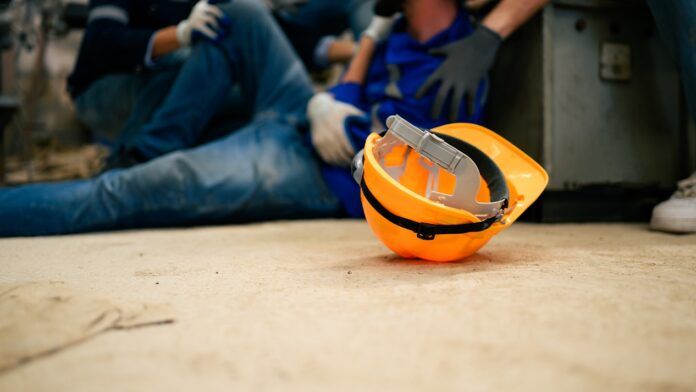Fatal incidents in UK construction during the 2022/23 period rose by almost 22% compared to the previous five years, with 1.72 deaths per 100,000 (four times the figure for all industries).
This is almost double the rate for the transportation and storage sector (0.91) and around 2.5x the rate in manufacturing.
The findings, collated by plant hire specialists Herts Tools which used construction statistics from Health and Safety Executive reports for 2023, found that every year, there are 61,000 injuries to construction workers. On average, a quarter of these are caused by slips, trips and falls.
Falling from height is still the number one cause of fatal and non-fatal incidents in the construction sector, which accounts for half of all deaths on site.
To prevent accidents on construction sites, Herts Tools suggests:
- Provide training and plan all work at height properly.
- Use the correct equipment and regularly check it to prevent falls.
- Avoid slips and trips by keeping floors clean, dry, well-lit and free of obstacles.
- Clear up spillages quickly, deep cleaning after working hours.
- Install safety guards on machinery and provide safety goggles.
- Store heavy objects close to the ground, fit debris nets and outlaw throwing tools.
Stefano Lobban, director at Herts Tools, said: “Although there will always be accidents in the construction industry, we can never stop trying to reduce them. These latest findings show just how far we have to go, with fatalities continuing to rise, despite the UK having some of the most thorough health and safety regulations anywhere.
“Training is key to protecting workers, whether it’s highlighting dangers or teaching workers to make their own risk assessments on site. Then there’s ensuring workers have all the PPE they need, such as helmets, safety goggles and slip-resistant footwear.
“I hope these findings act as a wake-up call to the industry and we’ll see a reduction in incident numbers next year.”
Phil Beaumont, health and safety consultant, said: “First and foremost it’s important for sites and companies to implement rules, procedures, and policies that people can follow clearly to conduct safe practice at work. Keeping a record of incidents and continuously assessing what went right, what went wrong, what was irrelevant and what more could have been done previously is vital to minimise future accidents at work.
“If a company reports an accident at work amongst one of its workers, depending on the severity of the accident and cause, they should carry out a thorough risk assessment for the returning person/people to ensure they’re capable of doing the tasks they’re assigned which won’t aggravate their recovery. This should also include manual handling and Control of Substances Hazardous to Health (COSHH) assessments.
“It’s also worth potentially looking at a buddy system, temporary assignments, reduced hours, and planning a stepped return to work for anyone who has experienced an incident in the industry.”




